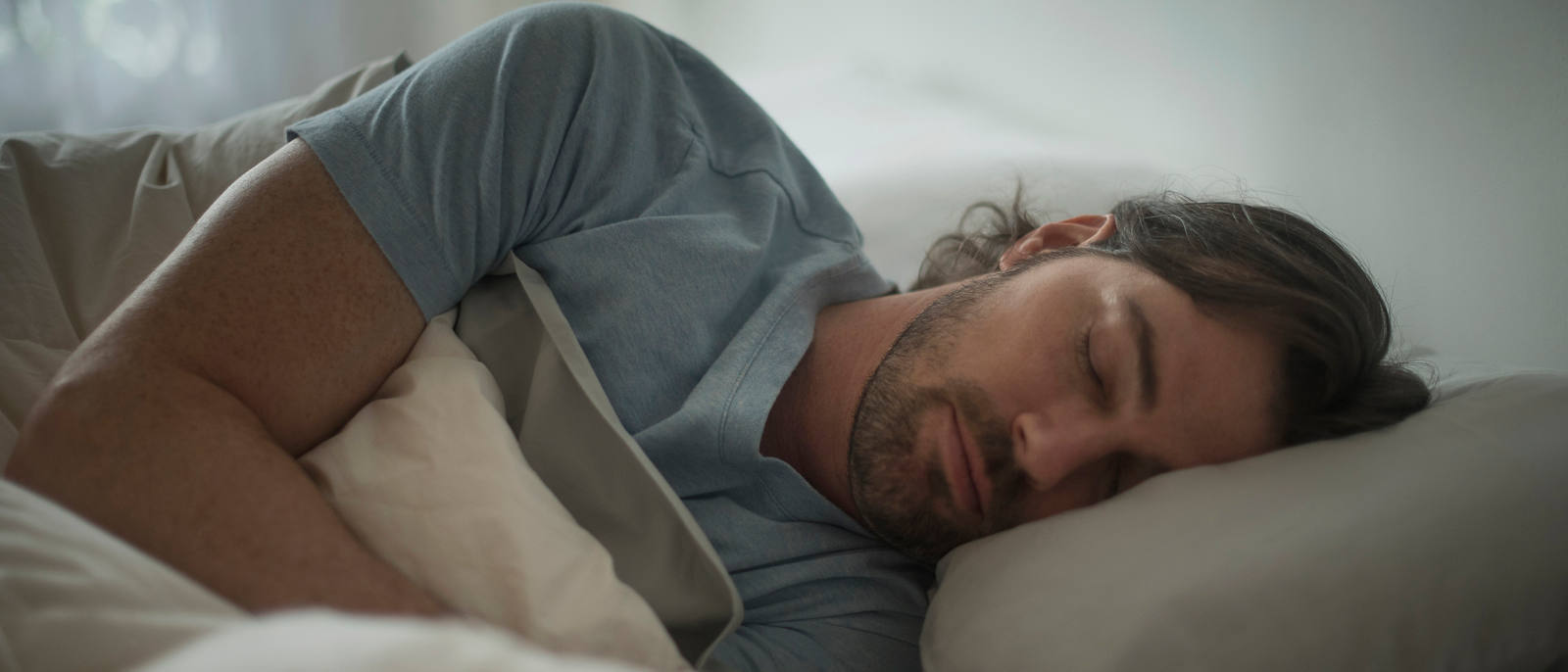Melatonin: why it’s important for a good night’s sleep

Sleep disorders and insufficient sleep are, without a doubt, unhealthy. Many people with the problem often wonder how they can improve their sleep. Healthy sleep is very much dependent on a hormone – the sleep hormone melatonin. How can we make use of this hormone?
What is melatonin?
Melatonin is a hormone produced naturally in the body. Colloquially, it's often called the sleep hormone. This is because the most important function of melatonin is to control our sleep-wake rhythm. In simple terms: as soon as our body releases the hormone melatonin, we become tired and our body demands sleep. When our melatonin level drops, our feeling of tiredness disappears.
Effect of the sleep hormone
Melatonin not only influences our sleep-wake rhythm, it also improves other functions in the body.
- Strengthens the immune system: the hormone supports our immune system. It can have a strengthening or inhibiting effect on the immune system, depending on the immune response.
- Antioxidant effect: melatonin has an antioxidant effect. It prevents or slows oxidation in our cells and helps cells regenerate.
- Regulates the exchange between blood and brain: the hormone can also help build a strong blood-brain barrier. This is the barrier between the bloodstream and our central nervous system. It regulates the exchange of substances between the blood and the brain.
Symptoms of a melatonin deficiency
A melatonin deficiency can manifest in various ways. One example is heartburn, as the sleep hormone inhibits the production of stomach acid. Other common symptoms include:
- sleep disorders and sleep deprivation
- disturbance of the day-night rhythm
- daytime sleepiness and chronic fatigue
- concentration difficulties
- depressive moods and mood swings
Tips for healthy sleep
Sleep disorders and non-restorative sleep can put us under severe strain. Not only do we feel drained during the day, but insufficient sleep also drastically weakens our immune system.
Promote melatonin production
-
Regulate sleeping hours: a sleep-wake rhythm with regular bedtimes and conscious sleep hygiene is beneficial. Our inner clock is a creature of habit; if we go to bed and get up each day at the same time, melatonin is more likely to be released and broken down at the right time.
-
Dim the lights in the evening and avoid using tablets and smartphones before sleep. Blue light particularly affects sleep as it counteracts the production of the sleep hormone. If necessary, blue light filters can help.
- Various plants can serve as natural sleep aids.
-
Plenty of daylight increases our serotonin levels, thereby improving conditions for melatonin production.
- Relaxation: in the evening we should reduce stress in order to lower the body’s cortisol level. Too much of the stress hormone cortisol blocks the release of melatonin.
When is melatonin released?
The release of melatonin is essentially dependent on our inner clock and the incoming light. As soon as it gets dark, our melatonin level increases in coordination with our inner clock. The pineal gland in the brain converts the happiness hormone serotonin into melatonin.
Cortisol makes us alert
Between 1.00 and 3.00 am, melatonin reaches its peak concentration level. Towards morning, this level drops and the body also releases the stress hormone cortisol. Cortisol makes us alert, which is how the body prepares itself for the day's activity.
The sleep-wake rhythm is inextricably linked to our internal clock.
Inner clock influences the day’s rhythm
That our sleep-wake rhythm isn't exclusively dependent on light becomes clear when we look at the light-dark cycle in our lives. Artificial light sources in the evening would otherwise have a disastrous effect on our sleep and shift work would be impossible. This means that it’s also our inner clock that has an influence on melatonin production in our brain. With evolution, almost all organisms in the world have developed an internal or biological clock, enabling them to adapt to the rhythms of nature.
Long journeys disrupt sleep
When we land in a different time zone, our biological clock can get confused, as external day-night rhythms no longer match our internal sleep-wake cycle. Melatonin levels rise too early in the day or are too low at night.
When is medication useful?
Melatonin medication in the form of sustained-release tablets are available only on prescription in Switzerland. It’s approved for the short-term treatment of patients 55 years and older with primary insomnia: sleep disorders that aren't the result of a physical or mental illness. Melatonin capsules are also approved for minors or adolescents with autism spectrum disorder or Smith-Magenis syndrome. The melatonin tablets have a sleep-inducing effect.
Side effects of the capsules
Possible side effects include headache, backache, joint pain and inflammation of the nose and throat. The consumption of melatonin should always be discussed with your doctor, also to exclude interactions with other medicines.
Melatonin spray and other products
Clinical studies show that melatonin can be effective against jet lag symptoms. However, melatonin products, such as a melatonin spray or food supplements, aren't officially licensed in Switzerland.
Melatonin levels in old age
With increasing age, the body’s melatonin level decreases. This is because of a natural calcification process in the pineal gland which causes the brain’s organ to produce – and store – less of the hormone. The consequences are shorter sleep and, above all, less restful deep sleep as well as an increased risk of sleep disorders. Good sleep therefore becomes rarer with increasing age.





